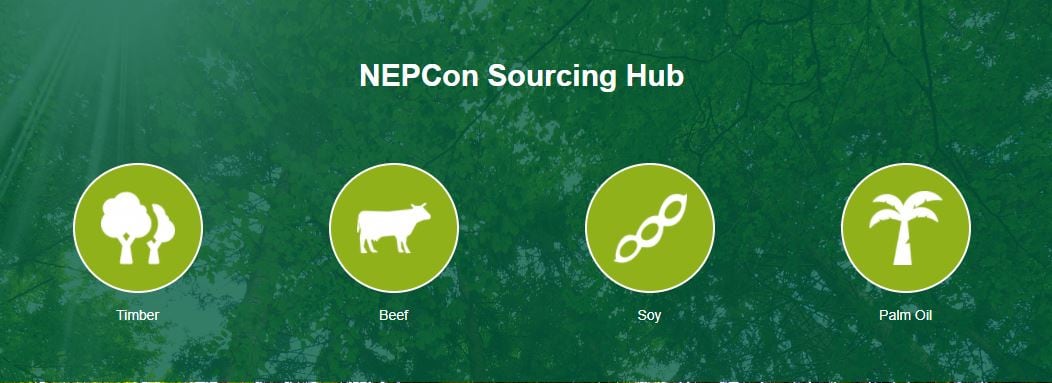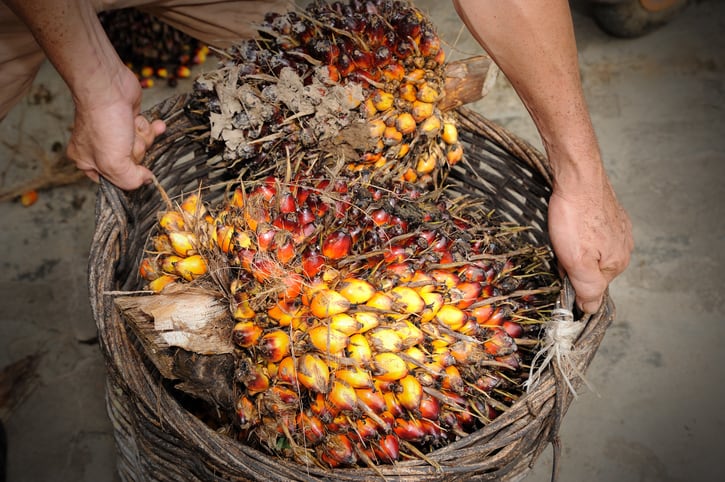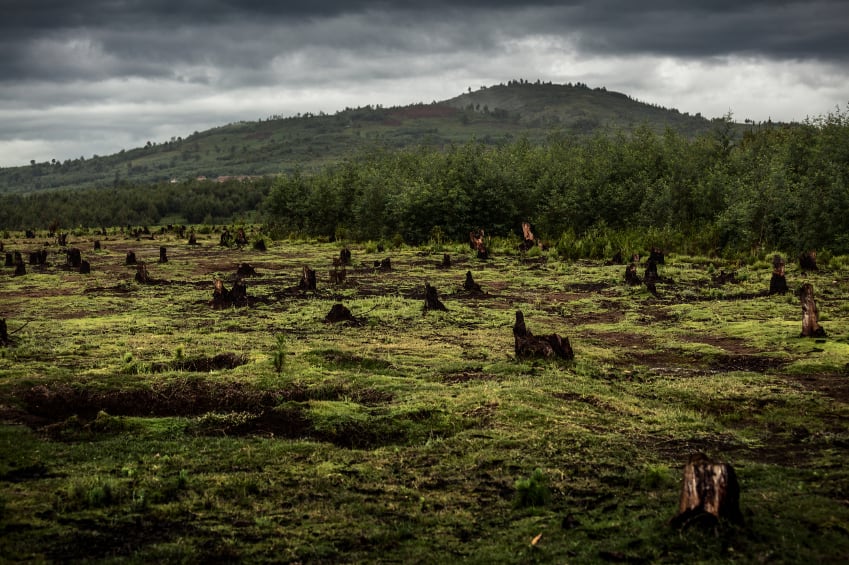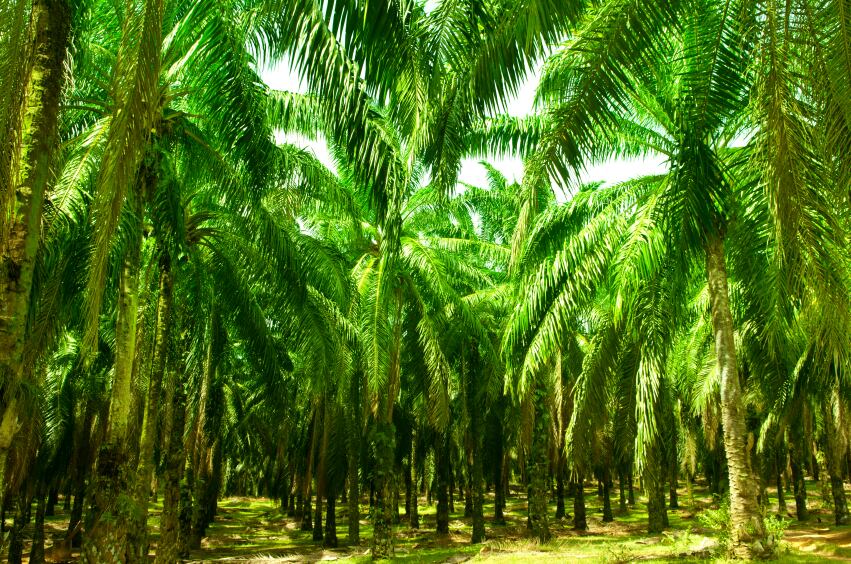Danish NGO NEPCon has certified as sustainable around 31m hectares of land for the Forest Stewardship Council (FSC) and is now turning its hand to agri-food commodities such as beef, soy and palm oil.
The money it makes from certification is used to fund its other missions, such as engaging with businesses and consumers about supporting sustainable commodities or training smallholder farmers about good agricultural practices.
Palm, soy or wheat: ‘Every bite has a story’
Its latest resource – three years in the making – is Sourcing Hub, a database that collates all the information that NEPCon has gathered from its certification and risk assessment work over the years so that businesses can make more sustainable purchasing decisions.

Sourcing Hub is the largest and most detailed collection of national risk assessments from countries producing palm oil, soybeans, beef and timber that has ever been published, the Danish NGO claimed. Its risk assessments cover 82% of world-wide palm oil production, 52% of world's total soy production and 16% of global beef production.
NEPCon said it provides a one-stop shop to learn about issues affecting each commodity's supply chain, the social and environmental risks associated with purchasing it in a given country or region as well as relevant local legislation.
Speaking to FoodNavigator at the database launch in Copenhagen last month, regional manager for south-east Asia Christian Schriver said: “Consumers are becoming more concerned about where their food comes from, and that’s important for companies.”
Over recent years, palm oil has been fighting something of an uphill battle in the reputation stakes.
The commodity’s first problem starts with the habitat loss associated with converting land to plantations. Once the plantation is up and running, environmental degradation caused by poor farming is a second problem.
“From an agricultural perspective, palm oil is the easiest crop in the world to grow. There are really no diseases or pests and it doesn’t need special soil conditions. It means that anyone can grow palm oil.”
The problem, however, is that many are not trained in good agricultural practices. Oil palms also require around one ton of fertiliser per hectare, per year.

Overuse of fertilisers, polluted water supplies and soil erosion are rife, and the fact that some of the world’s biggest companies work with millions of smallholder farmers doesn’t help to tighten up control over the supply chain.
Another service NEPCon offers, therefore, is training courses for the companies and their farmers. This month, Schriver is in Malaysia running a course with a leading supplier.
From Klondike to Kalimantan: Fighting the gold rush mentality
“It’s a difficult transition, however, to being a good farmer and a good environmentalist,” he said.
Schriver said there has been a certain “gold rush mentality” within the palm oil sector fuelled by the high price farmers can get.
There’s also a business argument for more responsible farming: poorly managed plantations yield 15 tonnes of fruit bunches per hectare annually while others can grow 35. There aren’t many other companies producing industrial crops that see such big differences in productivity, according to Schriver.
So how close are we to achieving a good, sustainable palm oil supply chain? Things are changing…albeit slowly.
Ten years ago, not many of the top palm oil producers and processors had an environmental department. This is no longer the case - although to what extent their environmental

departments actually work is less clear. Suppliers IOI, Wilmar International and Olam have been accused of a host of unsustainable practices in recent years.
Meanwhile, membership of RSPO, with whom NEPCon works as an independent auditor, is also growing and some countries are committing to sustainable land management. The Malaysian government has pledged to cap the country’s forest cover at 50%, promising that increased oil output will come from more efficient production methods, while it and neighbouring Indonesia - which together account for around 80% of global oil palm fruit production according to the UN’s Food and Agriculture Organisation – have launched their own national schemes.
These schemes, Malaysian Sustainable Palm Oil (MSPO) and Indonesian Sustainable Palm Oil (ISPO), have been widely criticised for undercutting the RSPO standard (which in itself, as voluntary and industry-led, is not seen as being the gold standard either) but the producer countries argue that they are at least more inclusive and achievable for smallholder farmers.
“There is no point in having a certificate that only 10% of farmers can adhere to,” Malaysian minister for plantations and commodities Datuk Seri Mah Siew Keong said earlier this year.
NEPCon: Nature, People and Economy Connected
As in other countries, environmental regulations that are initially decried by industry as being ‘bad for the economy’ are, over time, incorporated into standard practice.

In 1999, the Malaysian and Indonesian governments banned slash-and-burn techniques, used to clear land for new plantations or to remove old palms and plant younger trees, to the outcry of industry. Today, however, Malaysian farmers have largely abandoned this practice and instead try to find a way to capitalise on the organic matter, Schriver said.
According to Greenpeace, however, fires on plantations are still commonplace in Indonesia and this was a major contributing factor to 2015’s haze crisis which caused respiratory problems for citizens across south-east Asia.
Despite the many problems, palm oil does have the potential to be a sustainable oil – it produces seven to 10 times more oil per hectare than soy – on the condition it is sourced responsibly.
